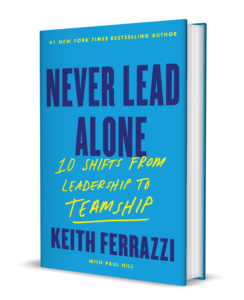Bosses are trying to rally their teams with a bit more understanding.
One of the most sought-after management skills right now is empathy—in other words, taking a genuine interest in co-workers’ lives and what makes them tick. Empathetic leadership has long had corporate disciples, but the concept has become a bigger focus of management training and executive coaching as businesses seek ways to bolster staff worn down by the pandemic’s stresses, or at least show they are trying.
Appreciating co-workers’ points of view and understanding their struggles, some executives say, leads to more engaged, happy and productive staff. Many workers say that is lacking. In a February survey of 15,000 U.S. workers by Gallup, a quarter said they strongly agreed their employer cared about their wellbeing, half the percentage who said so in the early months of the pandemic.
Ticketing company Eventbrite Inc. began an empathy-focused leadership development program in 2020 that all managers can take. It includes lessons on active listening, showing vulnerability and building trust with employees, developing what Chief Executive Julia Hartz calls a “critical business strength.”
Cisco Systems Inc. says it is building leader and team-coaching courses that weave in empathy. In one course, participants spend eight hours learning about each others’ strengths and personal styles, as well as how to better understand and trust each other.
A “Power Skills” training program at Zurich North America, a unit of Zurich Insurance Group, includes a six-hour section on empathetic decision-making. In one session, managers practice drawing out candid feedback from employees by asking, for instance, “How are you getting on with the learning management system?”—a style of asking that gives employees room to say whether they’re having difficulties. Employees who complete the section get a digital badge for “Empathy” that they can add to their online professional profiles or resume, the insurer says.
Before starting the program last year, “people would assume that empathy was something that either you had or you didn’t,” said Laura Rock, Zurich North America’s human resources chief, who says 400 employees have completed the course. “We fundamentally disagree with that as a premise.”
Some executives and leadership coaches say the feelings-first management approach can rankle employees who prefer keeping their emotional lives outside the office. Worrying too much about employees’ feelings risks standing in the way of constructive criticism, some say.
Data from LinkedIn shows that the number of member posts on the site that included terms like empathy, empathetic, compassion and caring doubled from the first half of 2019 to the first half of 2021.
Eddie Eltoukhy, 36, joined Pear VC, a Menlo Park, Calif., venture-capital company, as a partner in April and says the company’s culture of nurturing startup founders was a key reason he chose it over other companies that were recruiting him. A part-time consulting gig with the company showed him how the team worked together.
“They were incredibly authentic and genuine,” Mr. Eltoukhy says of the partners’ habit of asking startups about their concerns or how the company could help them. Both the pandemic and a hot job market made working for a caring and supportive employer important, not just the money, he says.
Trevor Mier, 29, says he put the word “Empathetic” at the top of his resume a few years ago, across from his name and in the same large, bold font. Once Covid-19 arrived, it became a much bigger topic of discussion in job interviews, he says.
“The pandemic kind of made the empathetic piece stand out more,” says Mr. Mier, now a project manager at a state workforce development agency in West Michigan.
One recommendation that executive coach Keith Ferrazzi gives clients is to conduct “energy check-ins” at the start of meetings, asking others to rate their energy level on a 0-5 scale. A low score is a chance to ask: Is there anything we or I can do for you?
“This is just a simple safety net for where people’s energies are and showing, ‘I care,’ ” says Mr. Ferrazzi, whose clients include Unilever PLC, General Motors Co. and Intel Corp.
Empathy can easily be misinterpreted, says Kim Scott, a CEO coach and former Google executive whose book “Radical Candor” advocates for direct communications at work. Managers sometimes mistakenly assume they should ask a lot of questions about staffers’ lives outside work in a way that can feel intrusive.
“That is not caring personally, it’s being oblivious to how the other person feels,” she says.
Too much focus on empathy can also cause some leaders to hold off on tough feedback. It’s counterproductive “when empathy begins to paralyze us to ‘I’m so aware of how you might feel that I’m afraid to talk to you,’ ” she says.
Empathy doesn’t have to come at the cost of high expectations; it’s about making sure expectations get met, says Christi Shaw, chief executive at Kite, a cancer biotech unit of Gilead Sciences Inc.
In 2016, Ms. Shaw left her senior executive job at Novartis AG to take care of her cancer-stricken sister. She later returned to the workforce after her sister’s death with a more mindful approach, she says. Now she says she gives more consideration to helping employees juggle caregiving demands, such as by offering more flexible working arrangements.
“Our mission is to cure cancer, and I’m empathetic to whatever you need to get that done in terms of your personal well-being, your mental health,” she says. “But I don’t have a lot of patience for ‘slow’, inefficiencies or bureaucracy.”
This article originally appeared in the Wall Street Journal and was written by Ray A. Smith.






